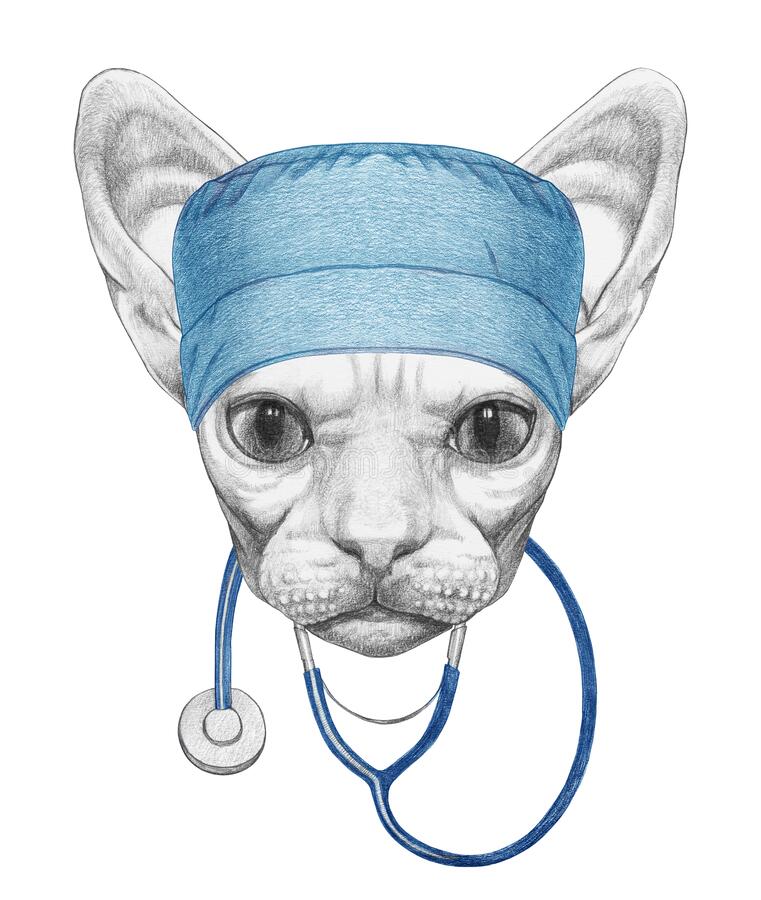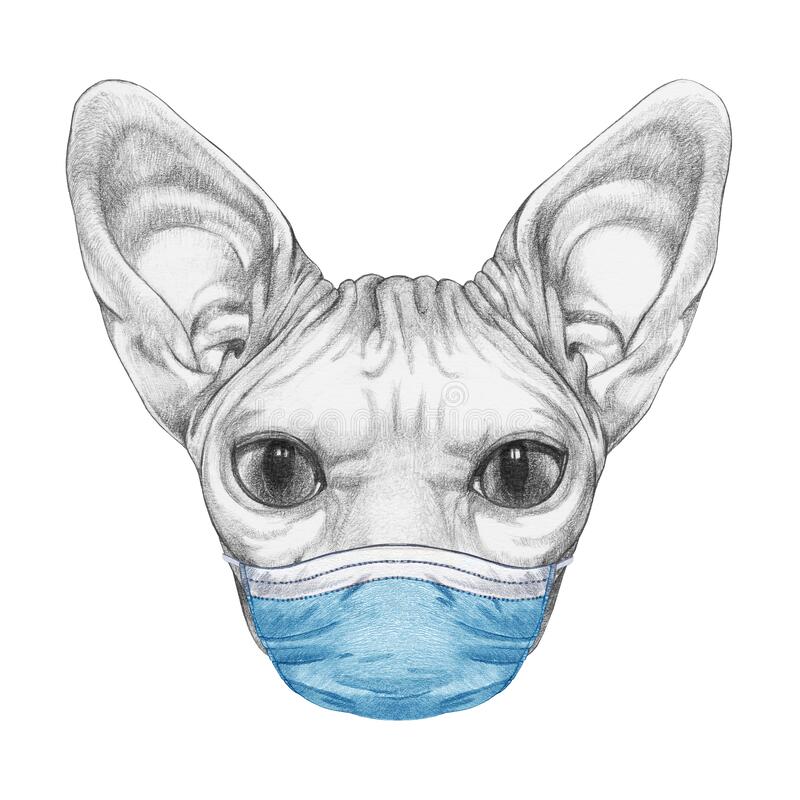Health

Donskoys are generally considered to be healthy cats; although, it’s important to schedule regular wellness visits with your cat’s vet.
Possible health problems include:
- Sunburn
- Skin problems
- Sensitivity to temperature extremes
- Gum disease
- Tooth decay
Because your cat has a higher body temperature than most cats have, you’ll notice they eat more.
To maintain their body temperature during the winter, your Donskoy will need more food than usual. Intake should return to normal once winter has ended.
‘Keep the eyes and ears clean.’
**Choose a good attentive vet.**
- HEART DISEASE IS ALMOST UNHEARD OF IN THIS BREED.
Will I be allergic to a Donskoy cat if I am allergic to other breeds?
The best hypoallergenic cat breed is the Donskoy because of its hairlessness.
Technically speaking it is impossible to get a 100 per cent hypoallergenic cat however there are breeds of cats who produce less of these common allergens. Before falling head over heels with a cat try visiting a cat of the same breed to see if your allergies flare up.
Note it isn’t cats fur but the saliva that cats use to groom themselves that is the allergen, because Donskoys have no fur there is nowhere for the saliva to get trapped. Also the fact that they are bathed regularly is a big plus.
POISONING
Signs & Symptoms of Cat Poisoning
There’s a vast range of substances that are toxic to cats, and symptoms of a poisoned cat will depend on the nature of the substance and whether it has been ingested, inhaled, or come in contact with your cat’s skin. Here are some of the most common signs that your cat has been poisoned:
- Salivation / Drooling
- Coughing
- Diarrhea and Vomiting
- Twitching or seizure
- Breathing difficulties (rapid or laboured)
- Coma
- Skin inflammation or swelling
- Abdominal pain
- Shock or collapse
- Unsteady gait
- Depression / Lethargy
- Excessive drinking, urinating
- Jaundice
- Irregular heartbeat
- Overall weakness
- Fever
- Loss of appetite
Keep these items away from your cat: –
First and foremost, for these naked beauties….NEVER rub essential oils on their skin…they cause seizures. Unfortunately, this has happened too many times, cat owners want their cats to smell nice and either add the oils to their shampoo or bath water or rub some on their skin.
The same can be said to air diffusers or those plug-in air fresheners. They are all toxic so please keep them out of reach.
Human Medicines
Some human over-the-counter and prescription medicines pose serious threats to cats, so keep them in a place they can’t get into, including:
- Antidepressants
- Cancer medicines
- Cold medicines
- Diet pills
- Pain relievers (acetaminophen, aspirin, ibuprofen)
- Vitamins and other supplements
Human Foods
Your kitty may beg when you sit down to eat (or try to steal some bites when you’re not looking), but some human foods can be poisonous for them, including:
- Alcohol
- Caffeine (coffee, soda, tea)
- Chives
- Chocolate
- Garlic
- Grapes
- Onions
- Raisins
- Xylitol (found in sugarless gums, candies, toothpastes)
- Yeast dough
Indoor and Outdoor Plants
Common houseplants — and a few others that you may bring into your home — can be hazardous to your cat’s health, including the following:
- Aloe
- Azalea
- Chrysanthemum
- Hyacinths
- Lily
- Marijuana
- Mistletoe
- Rhododendron
- Sago Palm
- Tulip
Insecticides and Other Chemicals
Some chemicals taste especially good to cats. To keep them safe, keep any chemicals locked away, especially:
- Antifreeze
- Bleach
- Detergents
- De-icing salts (which pets may walk through, then lick from their pads)
- Dog flea and tick medication (pills, collars, spot-on flea treatments, sprays, shampoos)
- Fertilizers
- Herbicides
- Insect and rodent bait
More Household Hazards
Watch out for common household items that can choke or strangle your cat. Some may even block their intestines if they swallow them.
- Chicken bones
- Dental floss, yarn, or string
- Holiday decorations, including lights and tinsel
- Toys with small or movable parts
If Your Cat’s Been Poisoned
Every moment matters if you think your cat has been exposed to something toxic.
Call your vet. Post the clinic’s phone number in an obvious place, they can help you know what to do next. Also, your closed 24hr animal hospital.
Call the Australian Poisons Helpline 1300 869 738 (AU). They may offer some help.
DO NOT let any cat outside. But especially a DONSKOY, firstly it is susceptible to the weather, secondly it can be taken, thirdly it can be injured or worse.
Nothing good comes from letting cats outside!
A Donskoy is a very new breed. It has very few health concerns. Please shop for a veterinary who is willing to do some research into your new family member. Please remind your vet that a Donskoy is not a Sphynx! They are different.

